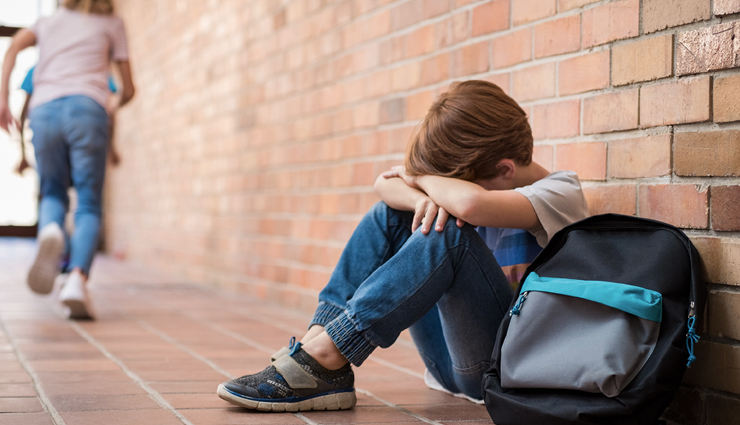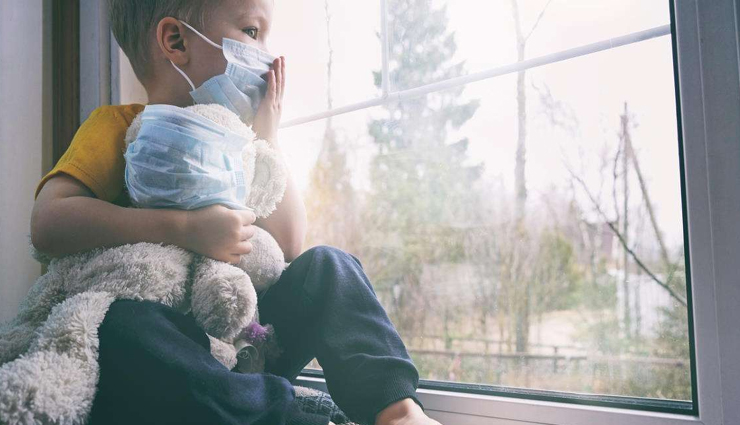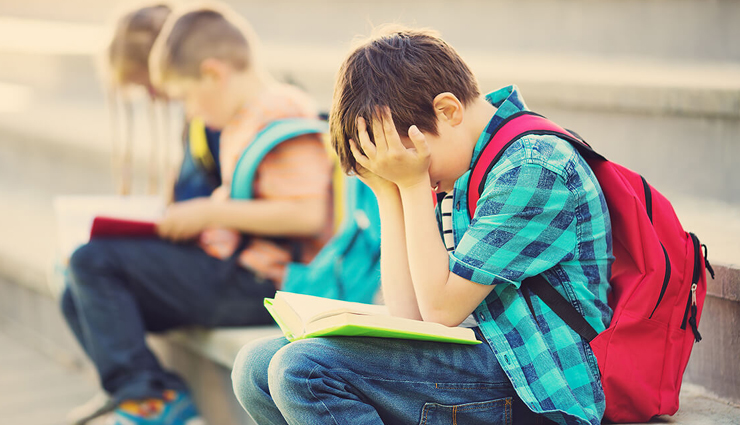- Home›
- Mates & Me›
- Ways To Treat Social Anxiety Among Young Children
Ways To Treat Social Anxiety Among Young Children
By: Priyanka Fri, 25 Dec 2020 9:45:21

Children in the age range of 12 to 36 months are called toddlers. During this period, a child's emotional and cognitive development begins, due to which their social skills also develop. This is the time when the child comes out of the house. Toddlers start going from daycare to play school etc. In such a situation, he meets other children and adults besides the members of the household.
Sometimes, in this stage, child social fears are also born. He may not feel comfortable having social contact with others. In the initial days, it takes a little time for the child to be set in a new place, but if the unfamiliar people have nervousness or anxiety, then they should help the child as soon as possible, otherwise later on due to this social anxiety, many kinds of troubles May have to face. So let's know how to overcome social anxiety in toddlerhood-

# Know the reasons
Before helping toddlers, you should also know about the causes of social anxiety in them. However, it is not yet completely clear what is the real cause of social anxiety in children at such a young age. However, in most cases genetics is considered to be the cause, as it contributes to a child's temperament and personality. Apart from this, the environment of a child can also make them a victim of social anxiety. For example, if an older child is already suffering from such a problem at home, then the younger child also learns a lot by looking at it. However, a study also found that young children can learn social anxiety behavior from their mothers. Unintentional gestures by the mother itself may teach the child that strangers or strangers are a source of concern.
# Helping children with social anxiety
If your child is suffering from social anxiety, she’ll need your support. There are lots of things you can do at home with your child, when you’re out in social situations, and whenever you’re talking with your child about her anxious feelings.
At home
* Prepare your child for situations that make him feel worried or fearful. Act out the situation at home and practise things he can do to make it easier.
* Encourage your child to do some ‘detective thinking’. For example, if she thinks that everyone will laugh at her if she answers a question in class, get her to ask questions like ‘What’s the evidence they’ll laugh?’ or ‘How do I know?’
* Tell your child about times you’ve felt anxious in social situations and how you’ve faced your fears. This will help him understand that it’s OK to talk about anxious feelings. He’ll also feel that you understand and support him.

# At preschool or school or in other social situations
* Gently encourage your child to join in social situations and start new activities. Avoiding social situations will make the problem worse.
* Don’t force your child to talk or do things in front of other people. Use gentle encouragement. When you’re with other people, avoid saying things like ‘Come on. Say hello to Jane. Don’t be shy’. If your child has an anxious reaction to a situation, don’t worry. Try the situation again another time with more preparation. Don’t punish or scold your child for ‘failing’.
* Try to avoid speaking for your child, because this can make the problem worse.
* Tell your child’s preschool, kindergarten or school about her anxiety. Also let them know what you’re doing to help your child. This way, other people in your child’s environment can give her consistent support.
# When talking with your child
* If your child does something that normally makes him anxious – for example, talking on the phone – acknowledge his bravery with lots of praise. Tell him that you’re proud he’s trying his best. If other people are around, praise him quietly and make a big deal when you’re alone. This helps to foster your child’s self-esteem.
* Avoid labelling your child as ‘shy’. If other people comment on your child’s behaviour in social situations, you could say something like ‘Actually, she’s quite outgoing around people she knows well’.
No matter how frustrated you feel, avoid criticising your child or being negative about his difficulty in social situations.





